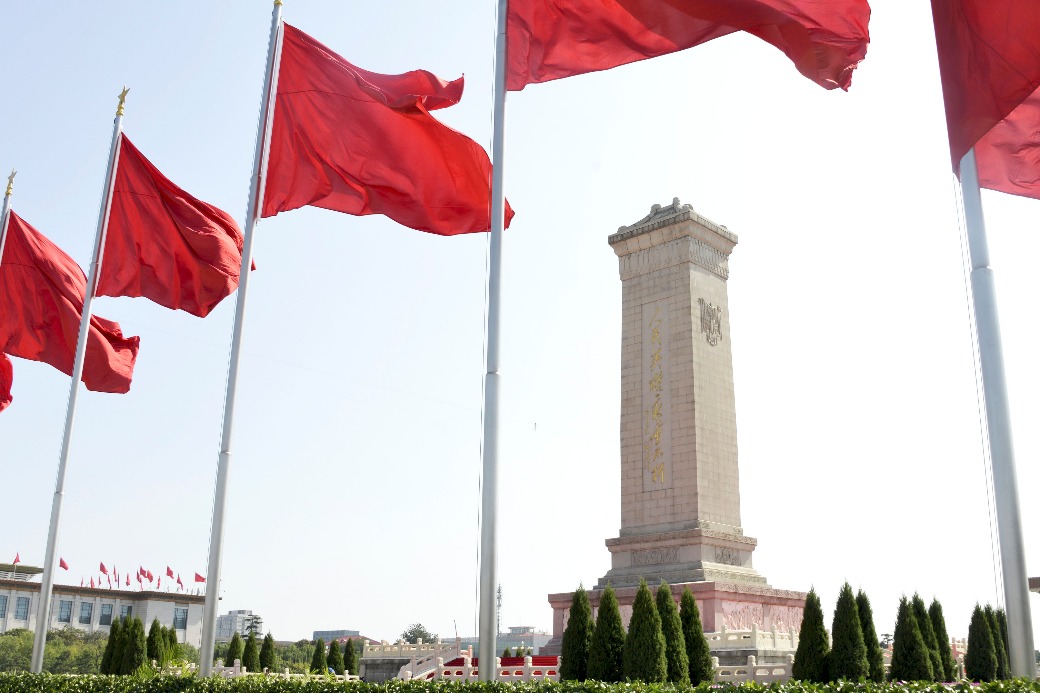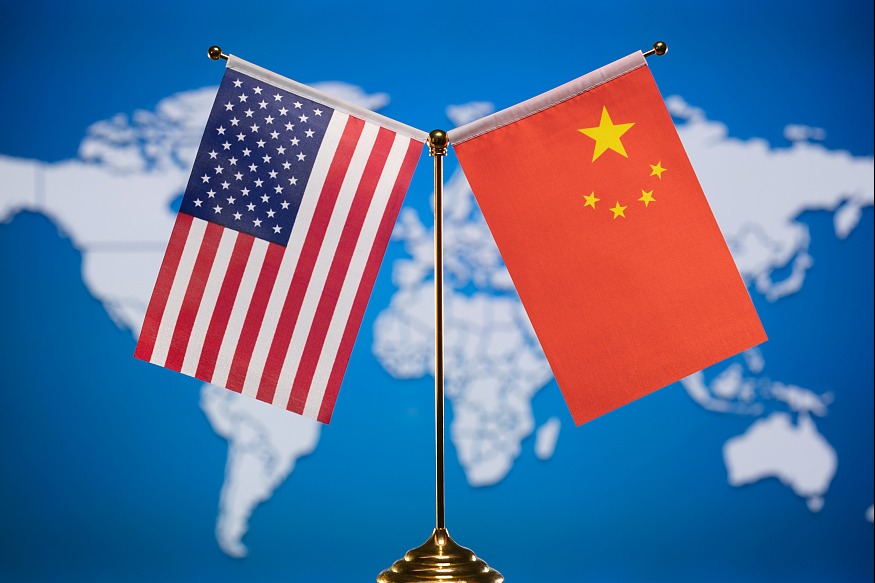Beyond oil
China-Arab energy cooperation should explore new opportunities in clean energy


China-Arab energy cooperation should explore new opportunities in clean energy
China and the Arab states are natural partners for cooperation under the Belt and Road Initiative, with bilateral energy cooperation being the most fundamental and strategic area of cooperation. The two sides are vigorously establishing China-Arab strategic cooperative relations in energy characterized by reciprocity, mutual benefit and friendship, and jointly exploring new cooperation modes led by oil and gas cooperation, followed by nuclear energy cooperation and accelerated growth in clean energy.
In the field of traditional energy cooperation, China and Arab states have been advancing the new cooperation model of "oil and gas plus", which covers the entire industrial chain of oil and gas exploration, mining, refining, storage and transportation.
With regard to new energy, China and the Arab states have been actively boosting cooperation in renewable energies such as solar, wind and hydropower. China and the Arab League have jointly built a clean energy training center; China and Egypt have built a joint lab for renewable energy; and China and the Arab states have carried out a variety of cooperation projects, including the Al Kharsaah Solar Power Project in Qatar, the 186 MW solar power stations at the Benban Solar Energy Park in Egypt and the 165 MW DC Photovoltaic Power Station EPC Project in Egypt.
Currently, driven by the pursuit of the carbon peak and neutrality goals, the global energy landscape is undergoing major shifts.
China has pledged to peak its carbon dioxide emissions before 2030 and achieve carbon neutrality before 2060, and the oil-producing Arab states, such as Saudi Arabia and the United Arab Emirates, have unveiled their road maps to net-zero emissions. The carbon emissions peak and neutrality goals will have a huge impact on the energy development of both China, the world's largest oil importer, and the Arab states, the world's most important oil-and-gas-producing region. The goals will bring opportunities and challenges to both sides, as well as bilateral oil and gas cooperation. To this end, in addition to the traditional oil and gas trade, China-Arab energy cooperation should explore new opportunities in the following areas to inject fresh impetus into bilateral ties.
To start with, energy cooperation should be deepened under the framework of "oil and gas plus".China-Arab energy cooperation is centered on the oil and gas trade, which is frequently hit by oil price fluctuations and geopolitical conflicts. The two sides need to strengthen their cooperation to cover the entire industry chain of oil and gas and all forms of energy. They should boost cooperation in oil and gas exploration, mining, refining, storage and transportation, and extend cooperation into new energy, including nuclear, wind, solar and hydrogen energy and new technologies such as energy storage and smart grids. China is a world leader in new energy development. With great natural resource endowments for developing many types of new energy, the Arab states are speeding up the low-carbon energy transition and diversification of energy sources. This has created broad space for bilateral new-energy cooperation.
Second, China and the Arab states should expand the space for cooperation in low-carbon technologies. The Chinese government and oil companies should seize the opportunity and make concerted efforts to promote the transformation and upgrading of China-Arab energy cooperation. To achieve the carbon peak and neutrality goals, the Arab states are in dire need of crude oil decarbonization technology, carbon capture technology and carbon storage technology, among other things, which will become the blue ocean of China-Arab technological cooperation. Currently, petroleum decarbonization technologies are not mature, not cost-effective and difficult to apply on a large scale. China needs to beef up its technology R&D cooperation with the Arab countries, by setting up joint research projects and applying the research outcomes in the decarbonization of petrochemical, iron and steel, and cement industries, among others. Bilateral cooperation in low-carbon energy technologies will improve the status of the two sides and strengthen their role and enhance their say and standard-setting capability in global energy and climate governance.
Third, the two sides should bolster cooperation in the digital transformation of the energy system. China should make the most of its technological edge to scale up bilateral cooperation in the digital transformation of energy systems — such as intelligent sensing, cloud computing, big data and the internet of things — to improve the security, accessibility and sustainability of energy systems. For instance, digital technologies such as cloud computing, artificial intelligence, the internet of things and distributed management could be applied in all links across the upstream and downstream of the oil and gas industry. The application of IoT technologies could realize real-time online access of equipment from both sides, and cloud computing technologies could improve the gathering, storage and analysis of carbon emissions data, empowering bilateral energy cooperation with digital technologies.
Last, the renminbi settlement in oil and gas trade should be promoted. Although the US dollar's dominance in oil and gas trade settlement can hardly be shaken in the short term, certain oil-producing countries have already expressed their desire for a more diverse range of currencies for oil and gas trade settlement. China could explore new ways of settlement via cash swap deals and the renminbi settlement for a small number of petrochemical products, among others. This will have far-reaching significance for the internationalization of the renminbi and the breaking of the US' financial hegemony.
The first China-Arab Summit is soon to be held in the Saudi Arabian capital Riyadh. The summit, a milestone in the development of China-Arab relations, will promote bilateral relations to a new height. Further development of the China-Arab strategic partnership will provide a political guarantee for bilateral energy cooperation.
Amid the carbon peak and neutrality quests, the global energy landscape is shifting at an accelerated pace, providing both opportunities and challenges for energy cooperation. To promote the transformation and upgrading of bilateral energy cooperation is of strategic significance to both China's energy security and the consolidation of China-Arab friendly relations.
China and the Arab states should, on the basis of strengthening their traditional oil and gas trade, boost whole-industrial chain cooperation in oil and gas, vigorously explore the potential for cooperation in new energy, strengthen the development and application of low-carbon technologies, and empower their respective energy transitions with digital technologies. The two sides should also take the China-Arab Summit as an important opportunity to advance the building of a China-Arab energy community with a shared future and take institutionalized energy cooperation to a new height.
The author is a professor of the Institute of Middle East Studies at Shanghai International Studies University. The author contributed this article to China Watch, a think tank powered by China Daily. The views do not necessarily reflect those of China Daily.
Contact the editor at editor@chinawatch.cn


































